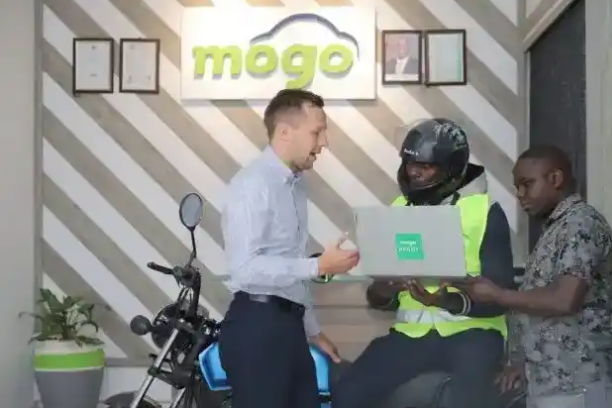Mogo Microfinance Kenya has been at the center of multiple fraud allegations, sparking growing concerns over its business practices and treatment of clients.
The microfinance institution, a subsidiary of Eleving Group, has faced accusations ranging from overcharging clients with hidden fees to harassing defaulters in aggressive and unethical ways.
One of the most disturbing allegations is that Mogo colludes with thieves and carjackers to repossess clients’ assets, including motorbikes and vehicles, particularly when customers are close to fully repaying their loans.
These claims suggest that Mogo uses its control over asset trackers to locate and seize customers’ vehicles.
Once repossessed, it is alleged that the company works with corrupt officials at the National Transport and Safety Authority (NTSA) to change the logbook details and number plates, making it easier to resell the vehicles to new clients without the original owner’s knowledge.
Such schemes have reportedly escalated to the extent that Nairobi Governor Johnson Sakaja has had to step in, urging President William Ruto to investigate the situation and restore order.
Despite the growing public outrage, Mogo Microfinance has largely avoided meaningful reforms, leading to speculation that powerful interests may be protecting the institution.
It has been suggested that the company’s international ties, including its Vancouver-based headquarters, may have “greased the palms” of Kenyan authorities, making it difficult to enforce meaningful oversight or regulatory changes.
The involvement of high-ranking officials or political figures may explain why some government bodies, including the National Assembly and Senate, have not taken stronger action against Mogo.
One key reason why Mogo remains appealing to many Kenyans is the level of poverty that pushes individuals to seek loans with seemingly favorable terms.
However, once a customer signs up, the journey to repayment often becomes fraught with challenges.
Many customers claim that Mogo frequently changes the terms of its contracts, adding hidden charges or modifying payment conditions in ways that trap borrowers in debt.
Failure to comply often results in repossession or, more troublingly, the alleged theft of their assets through proxy networks.
Beyond these allegations, there are also suspicions of tax evasion on the part of Mogo. Similar to other foreign-based companies operating in Kenya, Mogo is suspected of underreporting earnings and channeling profits through tax havens such as the Cayman Islands, Dubai, and Mauritius.
These practices allow companies to maximize their profits while avoiding the hefty taxes imposed by the Kenyan government.
The situation mirrors the recent case of UK-based fintech firm M-Kopa, which was found guilty of tax evasion to the tune of Ksh 885 million.
Critics have called on the Kenya Revenue Authority (KRA) to investigate Mogo Microfinance for possible tax evasion.
Given the company’s alleged political connections, any audit of its finances could be challenging.
However, many believe that addressing these issues is critical to restoring public trust and ensuring that foreign investors comply with Kenyan tax laws.
As the KRA steps up its efforts to crack down on tax cheats, Mogo Microfinance is increasingly seen as a prime target for further scrutiny.
The growing frustration among Kenyan citizens continues to build, with many hoping that the new leadership in the KRA will take action against Mogo’s alleged malpractice.
If the company is found guilty of tax evasion or other illegal activities, it could face major penalties and increased public backlash.





















Add Comment